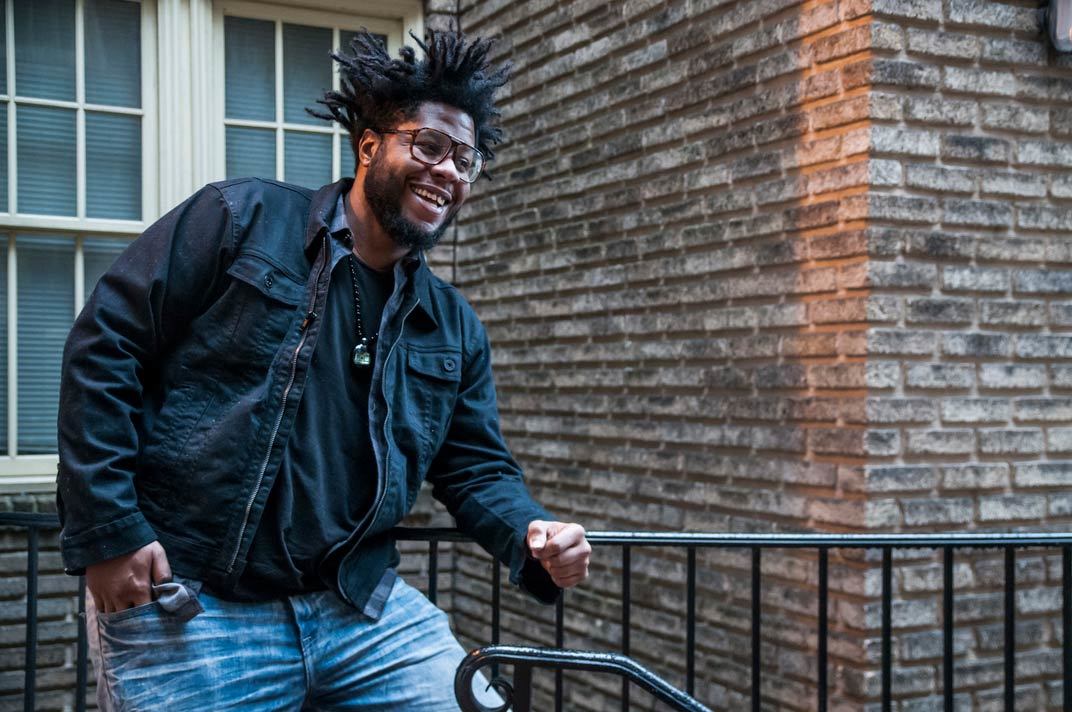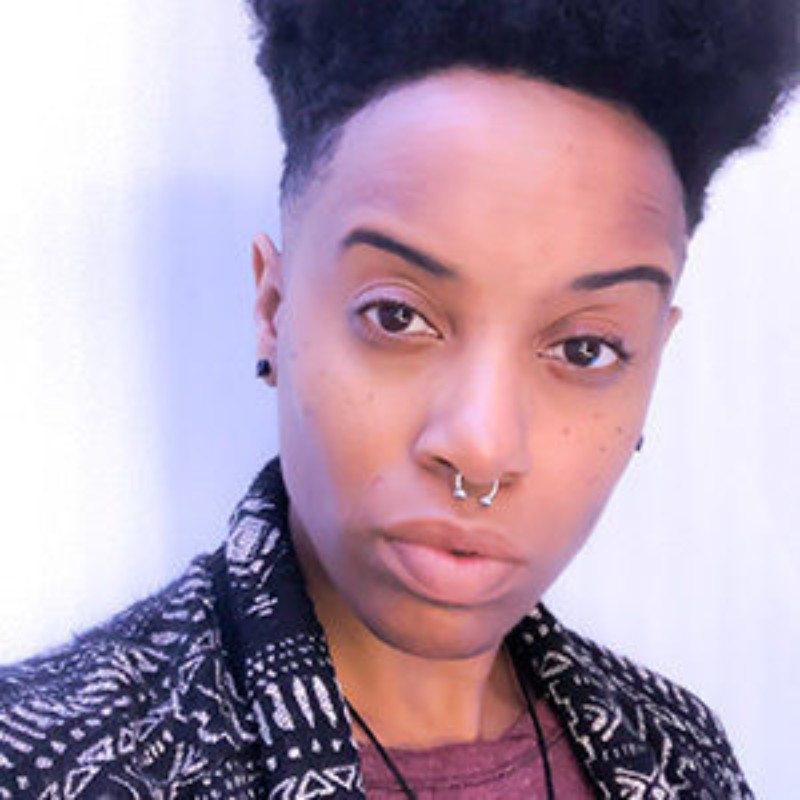
The life of Kariz Marcel has stretched and unfolded like an accordion and neatly fits back together to make the beautiful sound of success. Born in Rochester, New York, and raised in Baltimore, Kariz’s process is one for the big screen from homelessness to building a nonprofit and countless radio spins this man has accomplished what most people only dream of and he is still going.
We recently spoke with the producer, DJ, and founder of nonprofit Innovation Echo Alliance about his struggles with school, fatherhood, and the “angel” experiences that led to his success.
You have a hot song on 92Q and 95.9 FM entitled “Hey Baltimore” with Eze Jackson and Rufus Roundtree providing the vocals. How did that come about and what has come from that exposure?
Wow, that record really took off! Once we finished it we started sending it to all of the DJs we knew and Rufus went to school with DJ Class and so he let him hear the record. This was a big deal because DJ Class had the No. 1 club record in 2008 entitled, “I’m the Ish,” which eventually featured Kanye West. He loved the record and began spinning it everywhere. Once that happened, 92Q caught wind of it and began playing on their station. KW Griff, of the legendary 9 o’clock mix, began spinning it and once he transitioned over to 95.9 FM he began spinning it there as well.
There have been times when I have been in my car and I’ve heard it on both stations at the same time and that’s wild! As far as what has come from the exposure, our song has been the most played song from a local artist on the radio in 2017, we have performed it live for the Light City Festival: Neighborhood Lights and at the Red Bull Amaphiko Festival. The soul of the record is about creating opportunities and so we made a lesson from it where we have kids break the song down and rebuild it. So there is a kids version of “Hey Baltimore” out there and that goes along with my years doing Math + Music=Money and Innovation Echo Alliance, the nonprofit I am building.
What initially sparked your interest in making music?
I was born in New York, first of all, and New York was just so hip-hop, so my aunt dated DJs and music people and I just remember seeing it around. Eventually, it was all about, ‘What can I do to get girls?’ I had to figure it out! I wasn’t a ‘hooper,’ or super funny, or anything like that so I started writing rhymes and that led to making beats. But overall what happened between all of that is an injury happened. The bones were shattered throughout my arm and I had a compound third-degree fracture in my arm in the third grade, and the injury was so bad they had to pull me out of school through the fourth grade. I had to be home-schooled, my friends would bring me homework home, and my mom was working two jobs. I missed a couple of those years in school. So I asked my mom to buy me a keyboard and I started making beats with a big cast on my arm and I started performing more. Then I came to Baltimore.
How did coming here affect your journey into music?
When I got here, it was so different because I didn’t really know how to maneuver. Once again, I fell back on music, ‘You rap? Ok, then we can be friends.’ If people were creative, then it was easier to connect because at the time I was still doing a lot of painting. I would connect a lot with the artists and we would paint and then that would turn into music.
My grandmother bought me a computer in 1997 and I was the first guy in the neighborhood to be recording on a computer, nobody had seen that before. People were like, ‘What!? How are you recording from your computer, yo?’ My grandmother has always been my angel, my secret weapon, and once she got me that computer—that’s when I became the coolest kid in school. Having the computer allowed me to go to MARS [Music and Recording Superstore] with my mother and get the Cakewalk program. There was no YouTube back then, so once I figured out how to use it, that next day, I was walking around school with a boombox playin’ my own shit. I was telling people I had my own studio and I would charge $2 to record at my house.
What has been the most difficult part of your process as a creative?
Nothing is difficult about being a creative, but everything is difficult about aligning a business structure around your creativity. Here’s the thing about it: I started making money off of beats before I even knew how to make beats. After high school, I left Essex to go to a two-year art institute in Manhattan and I went there with all of my friend’s beats. I would go to any open mic or borough and try to sell the beats.
New York City got me in spaces with stars and, when I came back to Baltimore, I realized everything that everybody was doing here was wrong. I felt like I had a leg up and I decided to pour all I had into it. But yeah, the art ain’t hard—it’s trying to figure out how to put all the pieces, all the experiences, together to try to make money off of it.
What motivated you to step from the background, not only to start DJing and performing but to create the new sound that is Afro-EDM?
There are so many sources where it came from, but then this angel thing happened. Lenora King, my sister and artist I was creating music for, introduced me to this guy she was working with from Philly because he wanted to know who was making all of her music. He told me that he wanted to hear everything I ever made and I was like, ‘That’s going to take 10 hours’ and he was like, ‘That’s okay.’ So he came over the next morning and was patiently listening to everything I ever created and telling me to put different songs in different folders. He then said, ‘Do me a favor, that folder at the top, open that folder for me. That’s who you are. That’s the one thing you’ve got in you catalog that sounds like nothing that exists. Do more of that and stop making everything else and start DJing.’ I have never heard from this man again, his phone doesn’t work, email no response. He just disappeared.
I didn’t know why I was going to listen to a stranger, but I bought DJ equipment and I stopped making all of the other genres I made. He was a 50-something-year-old man, an industry vet and he knew what he was talking about. I then started DJing parties and it wasn’t until now that people can hear my music online.
It’s crazy because I didn’t call it Afro-EDM but other people started calling it that when they would come down to our parties on Calvert Street. To me, it’s still world-hood, but Afro-EDM is definitely something the world recognizes.
How did you first start blending your music with curriculum to create the Kariz Kids?
That happened out of demand. I had a wonderful girlfriend at the time, Karen, director of education for the Creative Alliance and she told me that the kids needed to do something and asked me if I could bring my beat machine to the school if they paid me $50. I went there and did it about three or four times and it was cool, but I didn’t want to be anybody’s role model. I wasn’t ready for all of that.
But CitiBank had gotten a big grant to start teaching kids in the ghetto financial literacy, that was the funding trend during that era, and then Karen asked me if I could find a way to blend my music stuff with financial literacy because the kids were literally falling asleep with the CitiBank curriculum. So I took that curriculum and re-worded it with everything in pop culture that was relevant and I brought in a laptop to blend it with that and at the time it was literally just one sheet.
Then more organizations wanted me to work with their kids. So then, I got a call from Karen and she asked me if I could do it in four schools. I personally couldn’t, so I decided to train my friends who made beats to teach and they went out there and did it. I remember a kid wanted me to help her with a math problem, and I wrote easy questions that connect math to music scenarios, but I also got other producers to help me write more math problems and studio scenarios. I then got with a Common Core math teacher and he restructured the math problems and then we basically had a textbook for my Math + Music= Money curriculum. I then got an opportunity to sit down at the CitiBank table and that’s when I realized that this was something I needed to take this more seriously and then I took the program to New York and D.C.
Kariz Kids is an important next step for you—it involves an app, curriculum created from the music on your upcoming LP The Blackwater Project, and more. Can you tell me more about the Innovation Echo Alliance?
So Innovation Echo Alliance [IEA] has been built up by some partners, business people, who were like, ‘Look we need to build the back-end for your organization up.’ They went in and put their money where their mouth was and helped me build it out. This encompasses my complete vision for what my nonprofit should be. It’s still in the beginning stages, but we are releasing it this month and we will be working alongside different record companies to make it happen.
This is what it was all about—bridging the gap. The mission of Kariz Kids was to bridge the gap between entertainment, education, and business. With IEA, our mission is to build and unite artistic professional educators, recording artists, producers, songwriters, musicians and recording engineers who are committed to changing our community for the better by nurturing minds and educating youth while aiding organizations in accomplishing their charitable goals. We will also be using music from my upcoming release The Black Water Project and the artists on the record to teach a curriculum created from the album in educational spaces and parts of it will be used specifically for the upcoming mobile app.
Where would you like to see yourself in 10 years?
Within the next 10 years I want my son, Jazz, to be a true product of all of these dope platforms that I have developed. I want him to learn on them and build his own product. I want him to be able to take his ideas and put it on the market.
